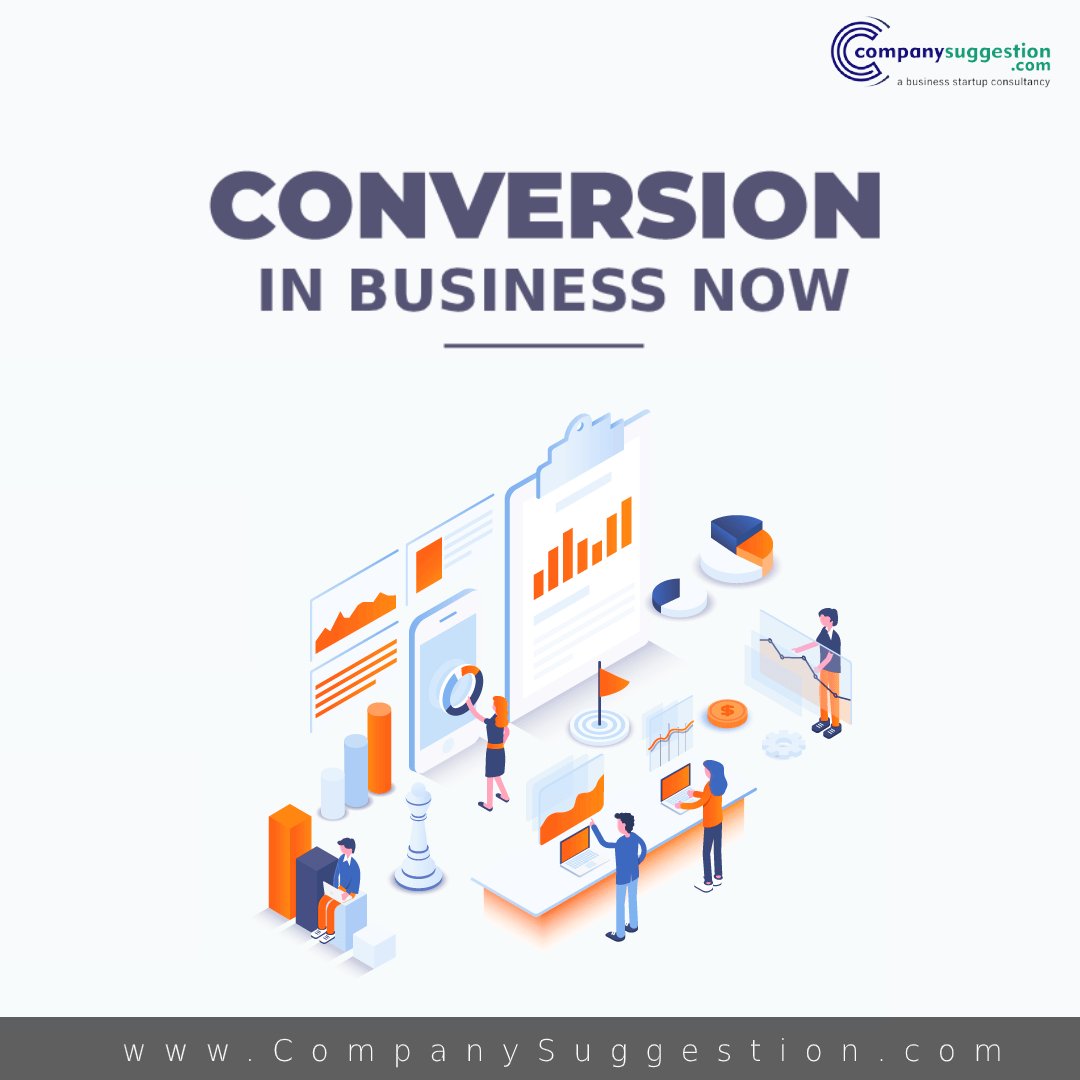Conversion of Proprietorship firm to One Person Company - Online Process
A Sole proprietorship is meant to be owned and managed by a single person. The entire business depends upon the sole owner, who has to take all the responsibility and risk single handed. Sole proprietor can be Conversion of Proprietorship firm to One Person Company easily.
Request A Call Back
Conversion of Proprietorship firm to One Person Company
- A Sole proprietorship is meant to be owned and managed by a single person. The entire business depends upon the sole owner, who has to take all the responsibility and risk single handed. Sole proprietor can be Conversion of Proprietorship firm to One Person Company easily.
- One person company is an improved and better form of a sole proprietorship firm. Forming a Sole proprietorship firm does not involve legal requirements or paper works, if fact, there is no registration available for starting a Sole Proprietorship firm. Any one can start a sole proprietorship firm, if they have enough capital and idea of running a business. The real burden of running a sole proprietorship firm is the unlimited liability of the owner.
- But, One Person Company eradicates all the above problems. If you register a One Person Company, it would become a Separate Legal entity with perpetual succession and also with limited liability to safeguard the personal assets.
- Forming a One Person Companygives more advantages for the small traders, businessmen and entrepreneurs, as the registration and maintenance cost for the company is minimal.
- One Person Company is an improved and better form of sole proprietorship firm. For medium- sized business, an OPC is better business organization as compared to sole proprietorship, single promoter have full control over the company.

How One Person Company differ from Sole Proprietorship Firm:
- A One Person Company is a Separate Legal entity differs from sole proprietorship firm, where the owner and the entity are one and the same.
- An One Person company has limited liability whereas in sole proprietorship liability is not limited and extends to the individual assets.
- In the OPC registration, a nominee has to be appointed, that nominee should be a person resident and natural born citizen of India. The nominee in the event of death of the sole owner becomes the member of the company and undertakes the management and affairs of the company.
- Formation of One Person Company involves time and paperwork. Necessary RoC fee has to be paid and also requires services of a Company Secretary to do the necessary drafting work & signing for incorporating the company. For setting a Sole proprietorship firm the above formalities are not required.
- The best part of One Person Company is that a Corporate identity and a Brand recognition would be obtained. This is the only reason where most of the people show interest in starting a company.
Though the concept of an OPC is still very new in Indian entrepreneurship and thus very revolutionary, it will take time for such a new concept to be incorporated with complete efficiency, but as and when the time will pass, an One Person Company will have a sparkling future and it will be embraced as a most successful business concept.
Benefits of Conversion :
01
Separate Legal Entity hence limited liabilityProtection of the company’s personal assets assures that the owner has limited liability to the extent of his/her own share.
02
Opens better business OpportunityLarge organizations prefer to deal with corporate firms instead of proprietorship firms. OPC is registered just like a private company and private companies are the trusted form of business which makes it easy for them to get funding from the financial institutions. It gives suppliers and customers a sense of confidence in the business.
03
An easy to manage structureThe structure of OPC is manageable as there is only one member. There is no requirement to hold an annual or added ordinary general meeting. There is no requirement to wait for anyone’s approval as there is only one person who is the single authority to make decisions.
04
Corporate StructureThe OPC gives the company a structure similar to a private limited company and hence make it organized with the benefit of limited liability. A sole proprietorship does not provide an organized structure.
How to Conversion of Proprietorship firm to One Person Company
Click on Get Started Button and Share your Contact Details
Pick a Package that best fits your requirements and Make Online Payment for your Order.
Submit Documents for your Order Using Online Dashboard or Mail to us.
Work will be completed by us and updates delivered Online and Get your Certificate of Incorporation online.
Documents Required For Conversion of Proprietorship firm to One Person Company
- PAN CardPAN Card of shareholders and Directors. Foreign nationals must provide a passport.
- Identity ProofVoter ID/ Passport/ Driving License of Shareholders and Directors
- Address ProofTelephone Bill /Electricity Bill/ Latest Bank Account Statement of Shareholders and Directors
- PhotographLatest Passport size photograph of Shareholders and Directors
- Business Address ProofLatest Electricity Bill/ Telephone Bill of the registered office address
- Financial StatementsDuly certified copy of latest audited Finacial Statements
- ITRITR of proprietor.
Frequently asked questions on Conversion of Proprietorship firm to One Person Company
1. Can OPC have more than one director?
Ans. A One Person Company is incorporated as a private limited company. It must have only one member at any point of time and may have only one director. One person cannot incorporate more than one OPC or become nominee in more than one OPC.
2. Is AGM mandatory for OPC?
Ans. OPC is required to hold its annual general meeting as required under section 139 (1) to appoint Statutory Auditor. Such auditor should hold office from conclusion of first AGM to the conclusion of 6th AGM
3. How many directors are there in OPC?
Ans. In OPC only one member is required that is why it is called as One Person Company (OPC). COMMENT: Section 149(1)(b) of the Companies Act, 2013 says that you can have maximum 15 directors, However first proviso provides that director may exceed 15 but only by passing special resolution.
4. How do you sell a proprietorship firm?
Ans. The following steps should be taken in order to sell a sole proprietorship:
- Determine the selling price. Estimate the total value of the business based on forward earnings.
- Find a buyer.
- Negotiate with potential buyers.
- Review offers.
- Create a sales agreement.
- Transfer asset.
5. What are the disadvantages of sole proprietorship?
Ans. The main disadvantages to being a sole proprietorship are: Unlimited liability: Your small business, in the form of a sole proprietorship, is personally liable for all debts and actions of the company. Unlike a corporation or an LLC, your business doesn’t exist as a separate legal entity.
6. Is OPC a small company?
Ans. The OPC is also a type of Private Limited Company, but with little distinctness. Similar to Private Limited Company, OPC Registration and its operations are governed by the Indian Companies Act, 2013.
7. Is ADT 1 mandatory for OPC?
Ans. Filing of Form ADT 1 is mandatory for all companies either listed/unlisted/public/private/others
8. Can OPC issue shares?
Ans. Minimum 1 director is required and an OPC can have a maximum of 15 directors. Can OPC issue shares? Shares can be issued only to the single shareholder of that OPC not to anyone else.
9. Can OPC have more than 1 director?
Ans. A One Person Company is incorporated as a private limited company. It must have only one member at any point of time and may have only one director. One person cannot incorporate more than one OPC or become nominee in more than one OPC

Following registered persons not required to file GSTR 1, 2 and 3 such as:
Goods and Services Tax (GST) is an indirect tax applicable on the supply of goods and services. It is a comprehensive, multistage, destination based tax. It has subsumed almost all the indirect taxes except a few state taxes. It is collected from point of consumption and not point of origin like previous taxes.
Documents attach in trademark application:-
A trademark can be registered by the Controller General of Patents Designs and Trademarks, Ministry of Commerce and Industry, Government of India under Trademark Act, 1999 to protect the identity of any goods and services.
Some basic information about Income tax
An income tax is a tax imposed on individuals or entities commonly known as taxpayers that varies with respective income or profits. Income tax generally is computed on taxable income which is calculated after various deductions. Taxation rates may vary by type or characteristics of the taxpayer.
Basic Features to Read before starting private limited company
Private company is required to add the word “Private limited” or “Pvt. Ltd.” to end of its name. Private company should have at least two member and two directors. Private company have right to issue debentures to any number of persons.
Features of Public Limited Company
MCA provides the facility for incorporation of public limited company. For incorporation, firstly apply for name through RUN (Reserve Unique Name) on MCA portal. After availability of name from ROC we should file incorporation form i.e. Spice 32, INC 33(for eMOA), INC 34(for eAOA), .